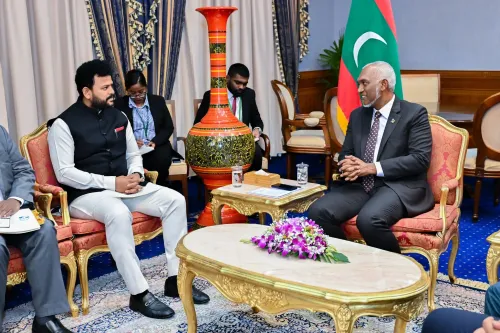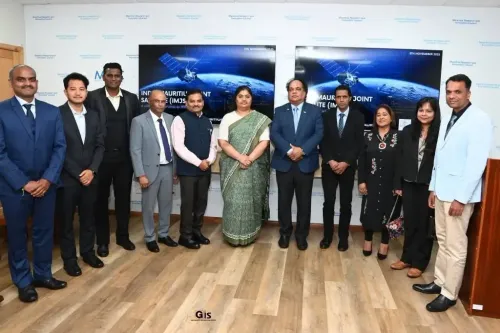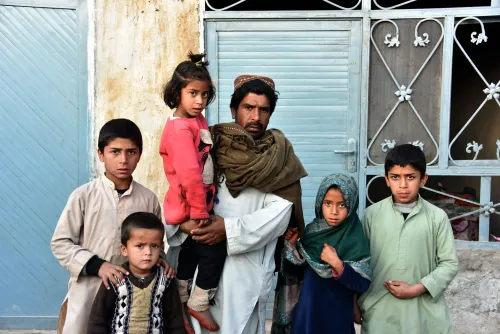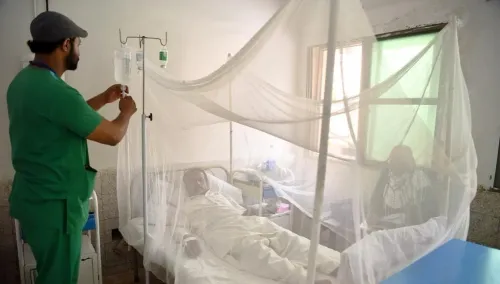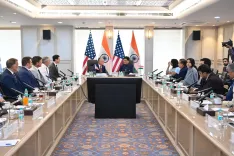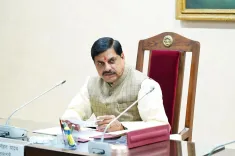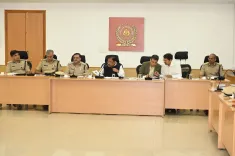What Did the UNSC Discuss About the India-Pakistan Situation?
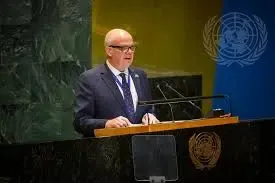
Synopsis
Key Takeaways
- UNSC convened a closed session to discuss India-Pakistan tensions.
- President Sekeris described the meeting as productive.
- Calls for de-escalation and dialogue were emphasized.
- The meeting was requested by Pakistan’s representative.
- Recent terrorist attack in Pahalgam escalated tensions.
United Nations, May 6 (NationPress) The Security Council convened for a private session to address the escalating tensions between India and Pakistan. Following the meeting, President Evangelos Sekeris referred to it as a “productive discussion”.
Upon exiting the meeting on Monday, he informed the press, “The Security Council plays a vital role in such efforts” aimed at de-escalation. “It is the Council's duty”, he added. “The meeting was productive and beneficial,” he stated.
Since the session was held privately, its proceedings remain confidential and lack official documentation.
Assistant Secretary-General Mohamed Khaled Khiari, who provided a briefing during the meeting, remarked as he departed that all parties are seeking de-escalation.
When asked for his perspective, he described the situation as “volatile” but declined to provide further details.
Russia’s Deputy Permanent Representative Anna Evstigneeva, in attendance at the meeting, expressed hope for de-escalation.
The meeting was called by Pakistan’s Permanent Representative Asim Iftikhar Ahmad, who requested a closed consultation due to procedural rules that exclude non-member states from participation.
This effectively barred India from the discussions, while Pakistan, being a current elected member, was allowed to participate.
Before the meeting, Secretary-General Antonio Guterres indicated that tensions were at a “boiling point” and urged both nations to “step back from the brink”.
He emphasized the urgency of preventing a military conflict that could spiral out of control, condemning the recent terrorist attack in Pahalgam that resulted in the deaths of 26 individuals. “I understand the raw emotions following this heinous act,” he added.
The terrorist organization The Resistance Front, linked to the Pakistan-based Lashkar-e-Tayiba, claimed responsibility for the assault.
After the closed session, Ahmad “categorically” rejected India's accusations regarding Pakistan's involvement in the attack.
His statements fluctuated between a stance of militancy and a call for dialogue. He characterized Kashmir as a contested region rife with discontent, which he identified as the core issue with India, rather than terrorism, while simultaneously expressing a willingness to cooperate.
“We are fully prepared to defend our sovereignty,” he asserted.
“We reaffirm our commitment to peaceful relations with all our neighbors, including India, and remain open to dialogue,” he continued.
In light of the serious nature of the situation, he noted that the calls for dialogue, de-escalation, and peaceful resolution of disputes, echoed by members of the Council, are extremely relevant.

